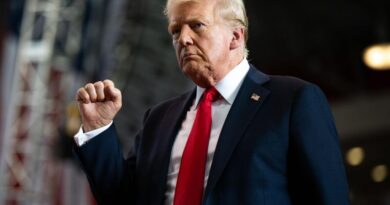The Significance of a President’s Financial Wellness in Addition to Their Political Views

On September 23, 1952, Richard Nixon faced a dilemma.
Speculations were rife that he had misappropriated $18,000 in campaign funds, leading presidential candidate Dwight Eisenhower to consider dropping him as his VP nominee. Nixon’s response?
A bold move to address the nation on television.
In what later came to be known as the “Checkers Speech,” Nixon aimed to regain the trust of the American public by revealing his financial standing: a $41,000 home in Washington, DC with a $20,000 mortgage, a $13,000 house in California with a $3,000 mortgage, no stocks and bonds, and a small life insurance policy.
“It isn’t much,” he remarked, “But Pat and I take pride in the fact that every dime we possess is rightfully ours.”
His speech succeeded in winning back both Eisenhower and the American public.
Though Nixon’s speech may seem dated now, it emphasizes a timeless truth: the financial status of our presidents should be a factor in our assessment of them.
Presently, Americans are more skeptical about political figures.
A recent study by the Pew Research Center revealed that 63% of Americans believe that elected officials enter politics for financial gain.
Furthermore, 80% feel that members of Congress do a poor job of separating their personal financial interests from their official duties.
Given the constant reports of politicians being embroiled in financial scandals, the polling data isn’t surprising.
A candidate’s personal finances can offer insights into their values, making it a pertinent subject when evaluating their suitability for public office.
Kamala Harris and Financial Prudence
Kamala Harris’ financial records portray someone who approaches the matter with great seriousness.
The progression of her finances from her initial senate campaign in 2016 to the vice presidency in 2020 and later as a presidential candidate indicates that her financial affairs are not only well-managed but also free of conflicts.
Her husband has relinquished his lucrative law career and partnership.
Harris has a diversified ETF (Exchange-Traded Fund) portfolio, demonstrating her participation in the capital markets without exploiting any insider information due to her position.
She isn’t the first presidential candidate to strive for perfection. Calvin Coolidge, a successful lawyer, rented a house for most of his life to avoid conflicts of interest and any ties to a bank.
Even when offered a $100,000-a-year salary to join Merrill Lynch’s board, he declined, citing his lack of expertise in banking and finance.
Another signal of Harris’ financial prudence is the joint revocable trust shared with her husband.
This pooling of assets simplifies their management compared to maintaining separate accounts.
Although Harris’ methodical and conflict-free approach has helped her amass wealth, some might mistake her quiet diligence for a lack of financial acumen, given the American preference for flashy financial success, exemplified by candidates like Donald Trump.
Donald Trump’s Wealth and Financial Strategy
One significant contrast between Harris and her opponent lies in Trump being the second generation of his family with substantial wealth.
His duty seems clear: preserve the inheritance from Generation 1 (his father) and pass it on to Generation 3 (his children).
However, achieving this is no easy feat, as evidenced by the familiar saying “shirtsleeves to shirtsleeves in three generations” when examining such family legacies.
It’s no surprise given his financial values and priorities that Trump supported the Tax Cuts and Jobs Act of 2017 (TCJA), which raised the estate tax exemption to $10 million per person plus inflation from $5 million per person.
Trump is adept at delivering tax rhetoric that appeals to affluent voters as seen with his recent statements on reinstating the SALT deduction.
Nonetheless, America is cautious of self-serving politicians, and Trump’s lack of transparency regarding his personal finances doesn’t sit well beyond his loyal base.
His historical opacity can give adversaries the impression that he has something to conceal.
Other affluent presidents have recognized the importance of transparency.
In August 1932, when Fortune published an article titled “The President’s Fortune,” Herbert Hoover, though dismayed and embarrassed by the exposure of his financial details, acknowledged it as part of the process.
Reflecting Values
While national monetary policy is crafted by numerous government officials, a president’s personal finances fall directly under their control, reflecting their values.
With the election drawing close, undecided voters should closely examine the financial profiles of the candidates to determine who would be a better custodian of the nation’s fiscal well-being.
In his Checkers speech, Nixon remarked, “A man planning to be President of the United States…should have the trust of all the people.” And nothing instills confidence – even in presidents – quite like financial integrity.
Megan Gorman is a tax attorney, wealth manager, and the author of All the Presidents’ Money.



